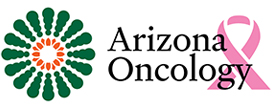Breast Cancer Signs & Symptoms
CANCER SCREENING
find a clinical trial
GENETIC TESTING
Genetic Testing

Learn more about our clinical trials currently enrolling breast cancer patients
Clinical trials
TALK TO ONE OF OUR CANCER CARE SPECIALISTS AT A LOCATION NEAR YOU.
REQUEST AN
APPOINTMENT ONLINE
Most early stage breast cancers are not palpable (they are asymptomatic) and are detected on a mammogram. However, a significant number of patients are diagnosed after they feel a breast mass. Should you discover a mass, either during a mammogram or self-examination, you should consult your doctor immediately. There are a variety of breast cancer types, and each presents with its own characteristics and dynamics. Sometimes, there are symptoms other than a palpable mass, which can be an indication breast cancer may be present. Below are a few additional signs that can arise and will warrant a consult with your physician for further evaluation.
Signs of Breast Cancer
- Change in breast size
- Red, itchy or irritated breasts
- Scaly skin irritation
- Skin texture changes
- Nipple discharge
- Change in nipple appearance
- Swelling in surrounding tissue
- Lumps in surrounding tissue
Change in Breast Size
It is common for many women to have one breast that is slightly larger than the other. Healthy changes in breast size or shape can also occur during menstruation and pregnancy. However, if you begin to experience a significant difference in size or shape that develops in one breast only, it can be a sign that breast cancer is present.
Red, Itchy or Irritated Breasts
Having the sensations of warmth in the breast or even a mild irritation can be a sign of inflammatory breast cancer. Be mindful, too, of an ongoing itchy feeling as well. If you experience any exterior redness or irritation, as well as internal warming or irritation, contact your primary physician.
Scaly Skin Irritation
If you notice your skin has a flaky or scaly appearance, or maybe even presents with general inflammation, you should contact your doctor. Healthy breast skin is typically smooth, so any noticeable variation can be a symptom of an underlying issue.
Skin Texture Changes
As mentioned previously, healthy breast skin is typically smooth. You may notice changes in your skin that are entirely normal, as a part of the aging process. However, if you find yourself developing a rash or experience a dimpling on your breast, it’s worth mentioning to your doctor. Some skin-related effects of breast cancer include this type of puckering appearance, much like a golf ball or orange peel.
Nipple Discharge
Nipple discharge can be a sign of breast cancer. If you are pregnant or postpartum, milk leaks are very normal. However, if you are not and begin to experience a colored discharge, reach out to your primary physician.
Change in Nipple Appearance
It’s normal for some women to have inverted nipples. However, if you usually do not, and suddenly present with flat or inverted nipples, you may want to evaluate further with your doctor.
Swelling in Surrounding Tissue
Pay attention to any swelling, not only of the breasts directly but in the surrounding tissue as well. As previously mentioned, a change in size or shape of one breast can be a sign of cancer. Similarly, isolated swelling along the chest cavity or in the armpit area could indicate the presence of cancer.
Lumps in Surrounding Tissue
Be mindful of lumps in surrounding breast tissue. For example, some breast cancers that spread to lymph nodes may feel like small lumps in your armpit. As part of your self-examination routine, gently press in the tissue around your breasts as well.
Breasts Can Change Normally
It can be alarming to discover a change in your breasts. Some of the symptoms don’t necessarily mean you have breast cancer. However, in the best practice of early detection, it’s a good idea to always be mindful of your ongoing breast health. Learn to recognize what may be normal for your body so that you can easily identify any signs of abnormalities.
Early Detection & Monitoring
One in eight women will have a breast cancer diagnosis in their lifetime. Perform self-examinations routinely and get to know your breasts and benchmarks for normal. For women over 40-years-old, annual mammograms are vital for early detection and continuous monitoring. Because some women present with dense breast tissue, MRIs can be suggested courses of scanning.
→ Related reading: 5 Questions to Ask Your Doctor About Breast Cancer Screening
When to Call Your Doctor
If you’re finding signs or symptoms previously discussed, or if you notice other significant changes in your breast, it’s best to contact your doctor for evaluation. Your doctor may recommend further screening or scans.
It can be scary to experience a mass or breast cancer diagnosis. There are significant advances in early detection practices, and patient outcomes are getting better. Consider Arizona Oncology as your trusted partner in your breast cancer journey. We can help you navigate every stage, from detection and diagnosis to available treatment and reconstruction options. Contact us today to learn more.


